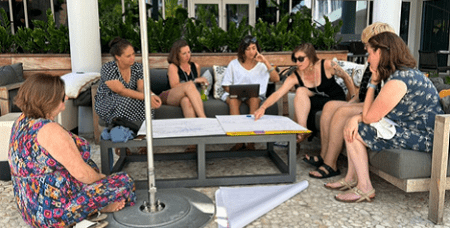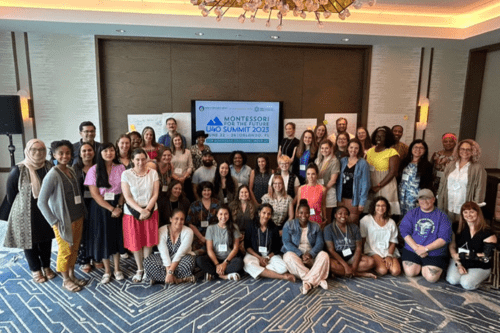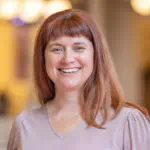In June, AMS and AMI/USA hosted a cohort of forward-thinking Montessori educators in Orlando, FL. The U40: Montessori for the Future Summit 2023 brought together 40 educators under 40-years-old to work together in identifying ways to improve teacher recruitment and retention, to better understand what teachers need to know to be successful with ever-changing demands, and to explore sustainable pathways for Montessori to expand its reach. In this collaborative effort between AMS and AMI/USA, an intentional decision was made not to identify who was from which organization but rather to come together as one Montessori community.
Mary Da Prato, an Early Childhood Montessori educator, shared, “The opportunity to stand up and speak about current Montessori needs in front of the entire U40 Summit was an extremely valuable experience. It was refreshing to participate in an in-person forum where Montessorians’ concerns were heard by organizational heads.”
To attend this grant-funded event, Montessori educators submitted applications to AMS and AMI/USA. Participants from twenty different states and three countries were invited to attend. Four common themes were identified from their applications: research, technology, equity, and awareness.

The opinions expressed in Montessori Life are those of the authors and do not necessarily represent the position of AMS.


